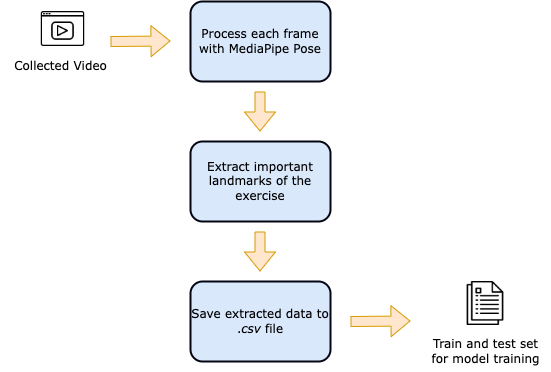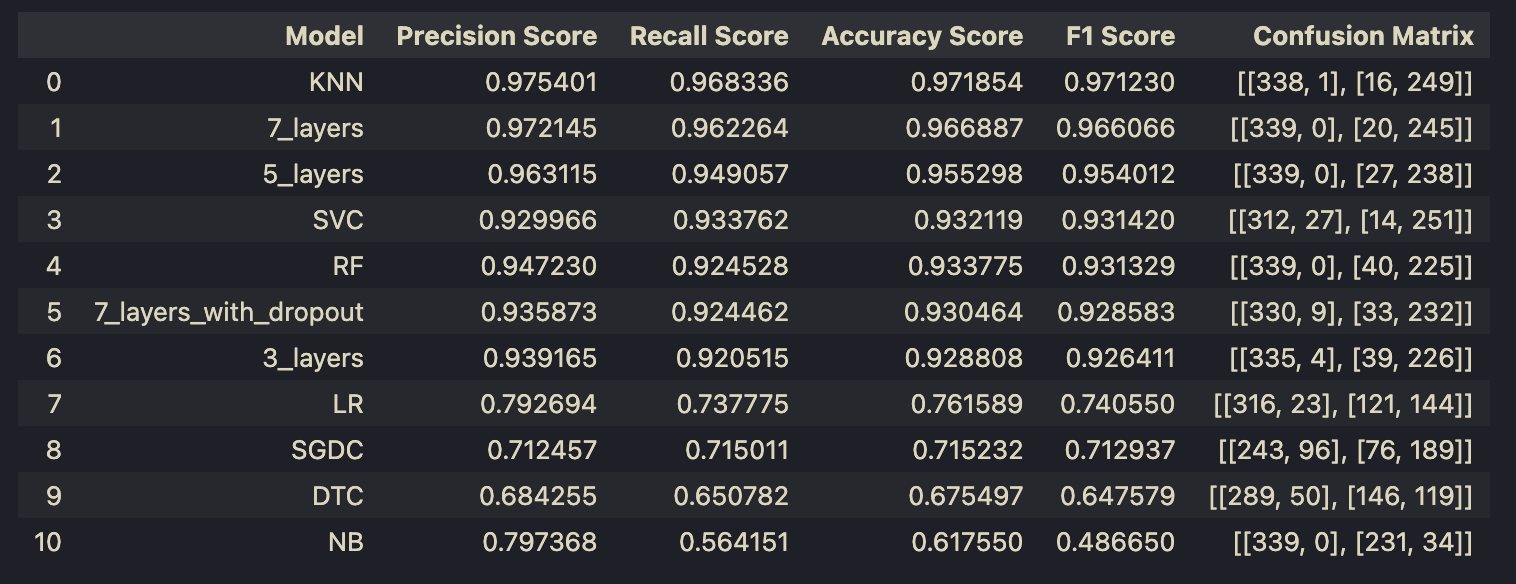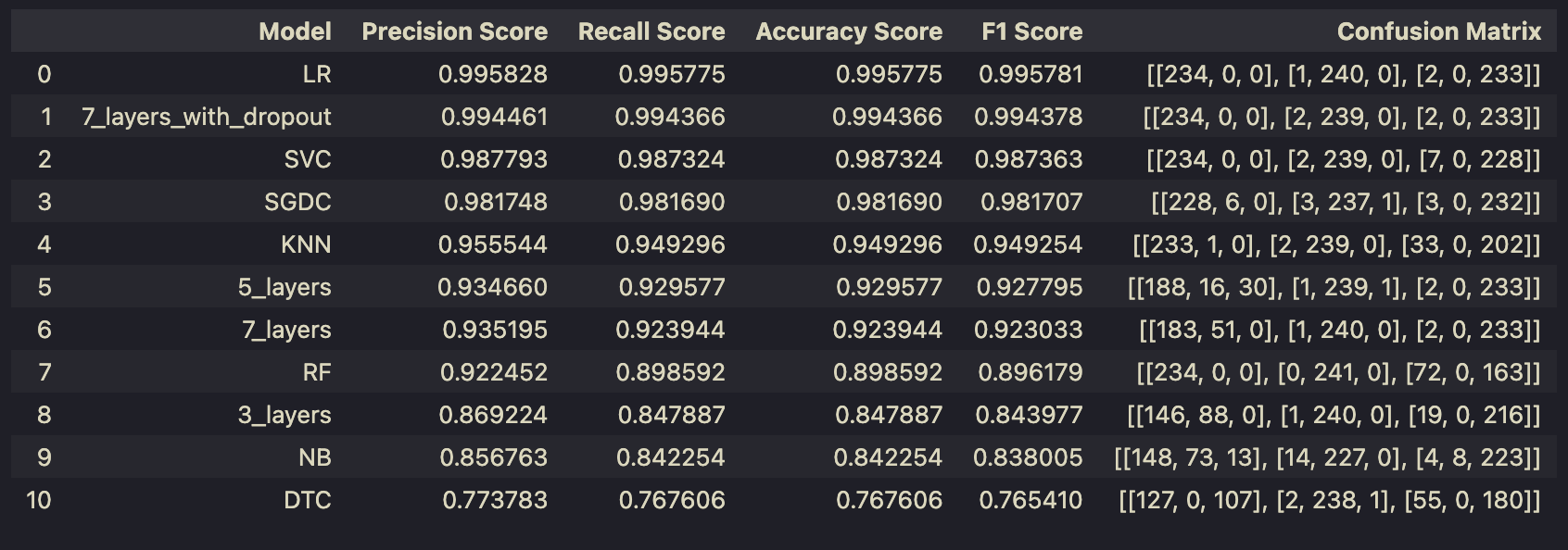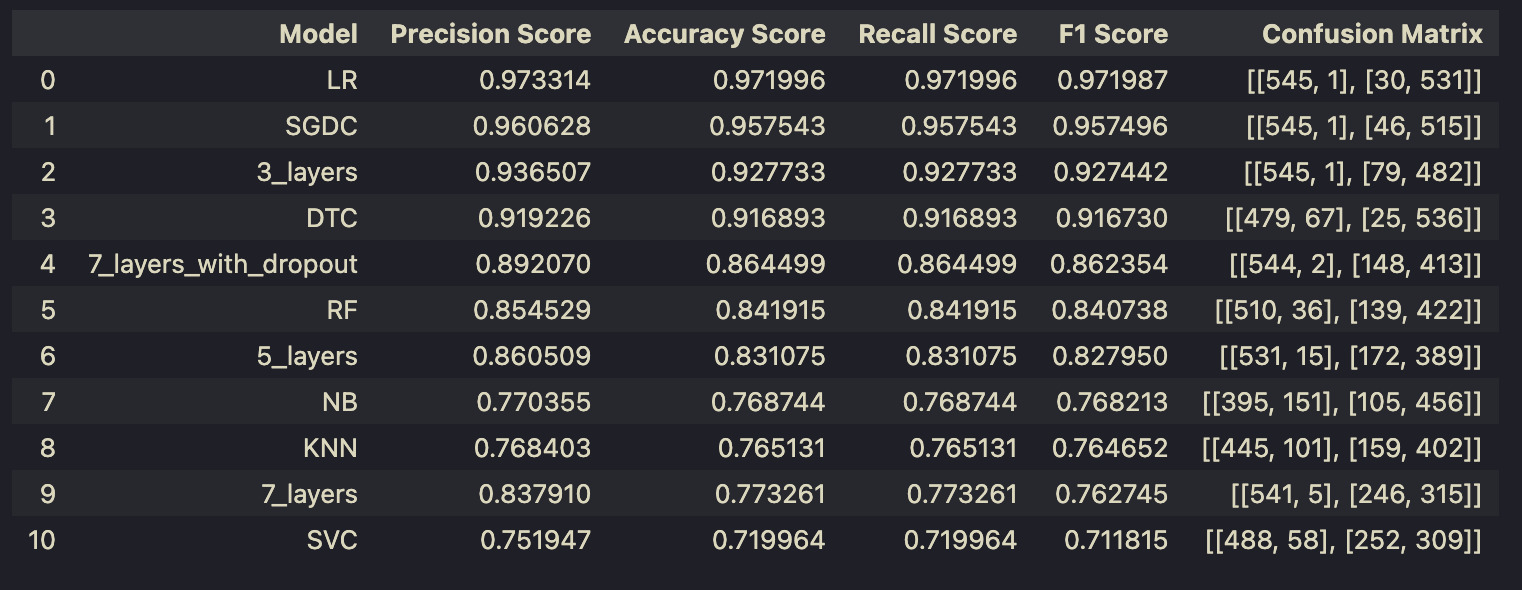Spaces:
Configuration error
Build Machine Learning Model
Brief overview about the methodology of building models for exercise pose detection. To go in depth on each exercise, click the link below:
1. Simple error detection
For some simple errors (for example, the feet placement error in squat), the detection method is either measuring the distance/angle between different joints during the exercise with the coordinate outputs from MediaPipe Pose.
Distance Calculation Assume there are 2 points with the following coordinates: Point 1 (x1,y1) and Point 2 (x2,y2), below is the formula to calculate the distance between 2 points.
distance= √((x1-x2)^2 +(y1-y2) ^2 )Angle Calculation Assume there are 3 points with the following coordinates: Point 1 (x1,y1), Point 2 (x2,y2) and Point 3 (x3,y3), below is the formula to calculate the angle created by 3 points.
angle_in_radian =arctan2(y3-y2,x3-x2) -arctan2(y1-y2,x1-x2) angle_in_degree=(angle_in_rad \* 180)/Π
2. Model Training for Error Detection
1. Pick important landmarks
For each exercise, there will be different poses/body’s position, therefore it is essential to identify which parts (shoulder, hip, …) of a body are contribute to the exercise. The important landmarks identified for each exercise are utilized to extract body part’s position while exercising using MediaPipe.
2. Data Processing

3. Model training
There are 2 methods used in this thesis for model training. For each exercise, the models trained for each method will be compared and the best model will be chosen.
- Classification with Scikit-learn. (Decision Tree/Random Forest (RF), K-Nearest Neighbors (KNN), C-Support Vector (SVC), Logistic Regression classifier (LR) and Stochastic Gradient Descent classifier (SGDC)).
- Building a Neural Network for classification with Keras.
3. Evaluation results of all models
Bicep Curl - lean back error

Plank - all errors

Basic Squat - stage

Lunge - knee over toe error
